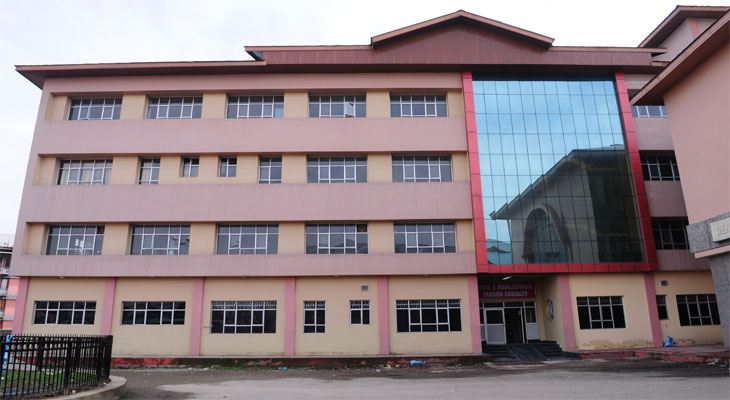Srinagar, Jan 24: In 2022, around 4000 drug abusers have turned up for treatment at Addiction Treatment Facilities (ATFs) established in rural areas, officials said.
“Out of the 4000 patients, 90 percent of them are opioid users. Among opioids, most of the cases were of heroine. Maximum IV fluids were used among opioid users,” Nodal Officer Mental Health and ATFs DHSK, Dr Majid Shafi said, adding “30 to 45 percent of IV users had hepatitis C infection.”
Directorate of Health Services Kashmir (DHSK) had established five ATFs in five districts including Bandipora, Budgam, Kulgam, Pulwama, and Shopian which started functioning from Aug 2021.
The ATFs were established in collaboration with National Drug Dependence Treatment Centre (NDDTC), AIIMS New Delhi to fight drug abuse, mental health issues.
While quoting a survey on prevalence of drug addiction in Kashmir, Dr Shafi said 70,000 people are suffering from substance use problems in the valley.
The survey was launched last year by DHSK in collaboration with GMC Srinagar, GMC Anantnag and GMC Baramulla and funded by the Social Welfare Department of Kashmir.
“Substance abuse is common in the community. For us, the substance abuser patients are just like depression or diabetes patients,” he said.
Dr Shafi said in every ATF there is a Medical Officer, nurse, councillor and data manager who are trained by the National Drug Dependence Treatment Centre.
Two more ATFs in Baramulla and Anantnag run under new medical colleges in the two districts. The ATF in Srinagar runs under the control of SKIMS Medical College Srinagar. However, Ganderbal and Kupwara have no ATFs.
Director, Health Services Kashmir, Dr Mushtaq Ahmad Rather said a mechanism has been created through which the department will reach out to people and in coming years there will be a lot of change as far as the mental health and drug addiction is concerned.
The director said that ATFs have provided relief to the people living in rural areas as earlier people had to visit Srinagar hospitals for treatment and counselling.
Spokesperson Directorate of Health Services Kashmir, Dr Mir Mushtaq said across India, 272 ATFs were approved out of which 5 were established in Kashmir.
“Kashmir is the only place that has made all the five ATFs functional. It has added to treatment and counselling facilities in districts as a lot of people suffer from mental disorders and drug addiction,” he said.
“It will be a huge boost for healthcare as we see staggering numbers of mental health and drug addiction cases. Both are deeply rooted in society. We are only seeing the tip of the iceberg and beyond that there is a lot more,” he said.
The ATFs will be one way of treating the addicts and these will act as de addiction centres as well. “Those affected by drug abuse should not be stigmatized. Instead they need love, care and affection so that we help them in coming out from addiction,” he said.
In view of prevailing drug addiction in the valley, the spokesperson said parents need to play a role and talk to their children and communicate with them.
He further said that they have trained different departments like police, education and social welfare that are working in collaboration with the health department.
In 2019, Jammu and Kashmir became the second state in India that rolled out a drug de-addiction policy after Punjab in order to fight the rising drug menace.







